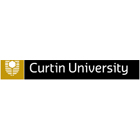Master of Professional Engineering (Chemical Engineering)
Master of Professional Engineering (Chemical Engineering)
This course is designed for graduates from a four-year Engineering undergraduate degree not accredited by Engineers Australia in a related discipline. The course is not suitable for graduates of a four-year undergraduate degree, with Engineers Australia accreditation in the same discipline. Those holding an EA accredited qualification and seeking a…
Categories
COURSE DESCRIPTION
This course is designed for graduates from a four-year Engineering undergraduate degree not accredited by Engineers Australia in a related discipline.
The course is not suitable for graduates of a four-year undergraduate degree, with Engineers Australia accreditation in the same discipline. Those holding an EA accredited qualification and seeking a masters level qualification in the same discipline are encouraged to consider applying for entry to the Master of Philosophy or Master of Engineering Management.
Applicants seeking entry who do not hold a four year Engineering degree are required to first complete the one-year Graduate Diploma in Professional Engineering.
This major provides you with extensive theoretical, laboratory, design and research experience. You will learn about technological advances in automation and control, and management of big data in resources, energy and chemical process industries. Environmental sustainability is also a focus.
During the course, you will gain at least 12 weeks of exposure to engineering professional practice and keep a formal log book to record your experience. In your final year, you will complete a major research project that will draw upon and integrate the knowledge and skills you attained through the course.
Most research projects are based on the supervisor’s research area, but some are industry projects, usually as a follow-up from your engineering vacation work.
Some projects may be selected for publication in academic journals or conference proceedings.
This major sits within the Master of Professional Engineering degree. To apply for this major, you will apply for the Master of Professional Engineering.
What jobs can the Chemical Engineering Major (M ProEng) lead to?
Jobs
Chemical engineer
Process engineer
Metallurgist
Process safety engineer
Production manager
Industries
Oil & gas
Mining & metallurgy
Manufacturing and processing
Pharmaceutical, pulp, paper
Professional, scientific and technical services
REQUIREMENTS
Applicants require a 4-year Engineering degree from a recognised institution in the same discipline of study. Students who have completed the Graduate Diploma of Professional Engineering degree at Curtin will be considered to have met the above course requirement.
Pearson Test of English Academic (PTE Academic) score of 60; Cambridge Certificate in Advanced English (CAE): 176; English language bridging (ELB): Grade B; CUTE (Curtin Uni Test of English) – A; IELTS (International English Language Testing System) – Listening, Reading, Writing, and Speaking – 6.0; Overall band score 6.0; TOEFL (Test of English as a Foreign Language) 79 (overall) Reading 13 Listening 13 Speaking 18 Writing 21.
EDUCATIONAL INSTITUTION
Curtin University is Western Australia’s largest and most culturally diverse university with Australia’s third largest international student population. Around 60,000 students from more than 130 countries study a Curtin degree, at locations including Perth, Margaret River, Kalgoorlie, Sydney, Malaysia and Singapore. Our cultural diversity adds a rich and valuable dimension to the campus atmosphere, preparing all graduates to live and work effectively in an increasingly global environment. We offer a range of industry-aligned undergraduate and postgraduate courses in business, humanities, health, engineering and related sciences. We also have a long-standing focus on Aboriginal and Torres Strait Islander education and culture, supported by our Centre for Aboriginal Studies.Curtin is widely recognised for its practical research that is focused on solving timely, real-world problems. In recent years our research activity has grown significantly, driving our rapid rise up the international university rankings.As a university that never settles, we will continue to develop existing partnerships and establish new ones in areas relevant to our research and teaching.




